
Anne Brontë was an English novelist and poet, the youngest member of the Brontë literary family.

Clive Barker is an English novelist who came to prominence in the mid-1980s with a series of short stories, the Books of Blood, which established him as a leading horror writer. He has since written many novels and other works. His fiction has been adapted into films, notably the Hellraiser series, the first installment of which he also wrote and directed, and the Candyman series. He was also an executive producer of the film Gods and Monsters, which won an Academy Award for Best Adapted Screenplay.
Tékumel is a fantasy world created by American linguist and writer M. A. R. Barker over the course of several decades from around 1940. In this imaginary world, huge, tradition-bound empires with medieval levels of technology vie for control using magic, large standing armies, and ancient technological devices. In time, Barker created the tabletop role-playing game Empire of the Petal Throne, set in the Tékumel universe, initially self publishing it in 1974. Later, Barker wrote a series of five novels set in Tékumel, beginning with The Man of Gold, first published by DAW Books in 1984.

The Angry Brigade was a far-left British terrorist group responsible for a series of bomb attacks in England between 1970 and 1972. Using small bombs, they targeted banks, embassies, a BBC Outside Broadcast vehicle, and the homes of Conservative Members of Parliament (MPs). In total, police attributed 25 bombings to the Angry Brigade. The bombings mostly caused property damage; one person was slightly injured. Of the eight people who stood trial, known as the Stoke Newington Eight, four were acquitted. John Barker, along with Hilary Creek, Anna Mendelssohn and Jim Greenfield, were convicted on majority verdicts, and sentenced to ten years. In a 2014 interview, Barker described the trial as political, but acknowledged that "they framed a guilty man".

Muhammad Abd-al-Rahman Barker was an American linguist who was professor of Urdu and South Asian Studies and created one of the first roleplaying games, Empire of the Petal Throne. He wrote several fantasy/science fantasy novels based in his associated world setting of Tékumel.

Briseis, also known as Hippodameia, is a significant character in the Iliad. Her role as a status symbol is at the heart of the dispute between Achilles and Agamemnon that initiates the plot of Homer's epic. She was married to Mynes, a son of the King of Lyrnessus, until the Achaeans sacked her city and was given to Achilles shortly before the events of the poem. Being forced to give Briseis to Agamemnon, Achilles refused to reenter the battle.

Regeneration is a historical and anti-war novel by Pat Barker, first published in 1991. The novel was a Booker Prize nominee and was described by the New York Times Book Review as one of the four best novels of the year in its year of publication. It is the first of three novels in the Regeneration Trilogy of novels on the First World War, the other two being The Eye in the Door and The Ghost Road, which won the Booker Prize in 1995. The novel was adapted into a film by the same name in 1997 by Scottish film director Gillies MacKinnon and starring Jonathan Pryce as Rivers, James Wilby as Sassoon and Jonny Lee Miller as Prior. The film was successful in the UK and Canada, receiving nominations for a number of awards.
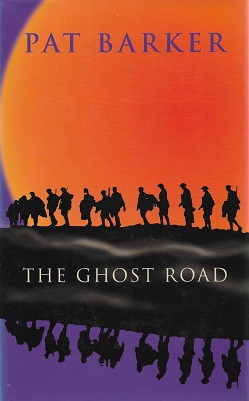
The Ghost Road is a war novel by Pat Barker, first published in 1995 and winner of the Booker Prize. It is the third volume of a trilogy that follows the fortunes of shell-shocked British army officers towards the end of the First World War. The other books in the trilogy are Regeneration and The Eye in the Door.

The Brontës were a nineteenth-century literary family, born in the village of Thornton and later associated with the village of Haworth in the West Riding of Yorkshire, England. The sisters, Charlotte (1816–1855), Emily (1818–1848) and Anne (1820–1849), are well-known poets and novelists. Like many contemporary female writers, they published their poems and novels under male pseudonyms: Currer, Ellis, and Acton Bell. Their stories attracted attention for their passion and originality immediately following their publication. Charlotte's Jane Eyre was the first to know success, while Emily's Wuthering Heights, Anne's The Tenant of Wildfell Hall and other works were accepted as masterpieces of literature after their deaths.

Alexander Crichlow Barker Jr., known as Lex Barker, was an American actor. He was known for playing Tarzan for RKO Pictures between 1949 and 1953, and portraying leading characters from Karl May's novels, notably as Old Shatterhand in a film series by the West German studio Constantin Film. At the height of his fame, he was one of the most popular actors in German-speaking cinema, and received Bambi Award and Bravo Otto nominations for the honor.
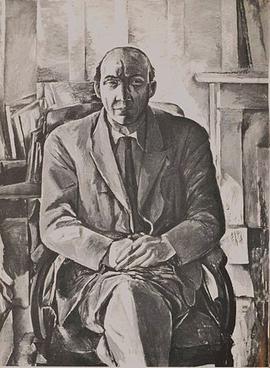
George Granville Barker was an English poet. He identified with the New Apocalyptics movement, which reacted against 1930s realism with mythical and surrealistic themes. His long liaison with Elizabeth Smart was the subject of her cult-novel By Grand Central Station I Sat Down and Wept.
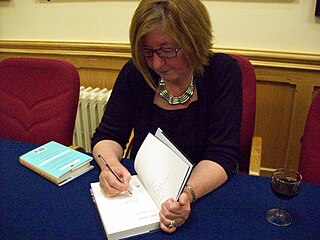
Patricia Mary W. Barker, is a British writer and novelist. She has won many awards for her fiction, which centres on themes of memory, trauma, survival and recovery. Her work is described as direct, blunt and plainspoken. In 2012, The Observer named the Regeneration Trilogy as one of "The 10 best historical novels".

The Stone Diaries is a 1993 novel by Carol Shields.

Pinhead is a fictional character and the main antagonist of the Hellraiser franchise. The character first appeared as an unnamed figure in the 1986 Clive Barker novella The Hellbound Heart. When Clive Barker adapted the novella into the 1987 film Hellraiser, he referred to the character in early drafts as "the Priest" but the final film gave no name. The production and make-up crew nicknamed the character "Pinhead"—derived from his bald head studded with nails—and fans accepted the sobriquet. The name was then used in press materials, tie-in media, and on-screen in some of the film's sequels, although Barker himself despises the moniker.
Noel Langley was a South African-born novelist, playwright, screenwriter and director. He wrote the screenplay which formed the basis for the 1939 film The Wizard of Oz and is one of the three credited screenwriters for the film. His finished script for the film was revised by Florence Ryerson and Edgar Allan Woolf, the other credited screenwriters. Langley objected to their changes and lamented the final cut upon first seeing it, but later revised his opinion. He attempted to write a sequel based on The Marvelous Land of Oz using many of the concepts he had added to its predecessor, but this was never released.

Go Tell the Spartans is a 1978 American war film directed by Ted Post and starring Burt Lancaster. The film is based on Daniel Ford's 1967 novel Incident at Muc Wa about U.S. Army military advisors during the early part of the Vietnam War in 1964, when Ford was a correspondent in Vietnam for The Nation.

Eric Leslie Barker was an English comedy actor. He is most remembered for his roles in the popular British Carry On films, although he only appeared in the early films in the series, apart from returning for Carry On Emmannuelle in 1978.
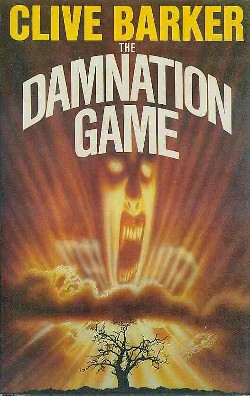
The Damnation Game is a horror novel by English writer Clive Barker, published in 1985. It was Barker's first novel.
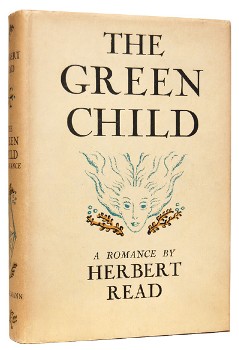
The Green Child is the only completed novel by the English anarchist poet and critic Herbert Read. Written in 1934 and first published by Heinemann in 1935, the story is based on the 12th-century legend of two green children who mysteriously appeared in the English village of Woolpit, speaking an apparently unknown language. Read described the legend in his English Prose Style, published in 1931, as "the norm to which all types of fantasy should conform".

The Silence of the Girls is a 2018 novel by English novelist Pat Barker. It recounts the events of the Iliad chiefly from the point of view of Briseis.


















